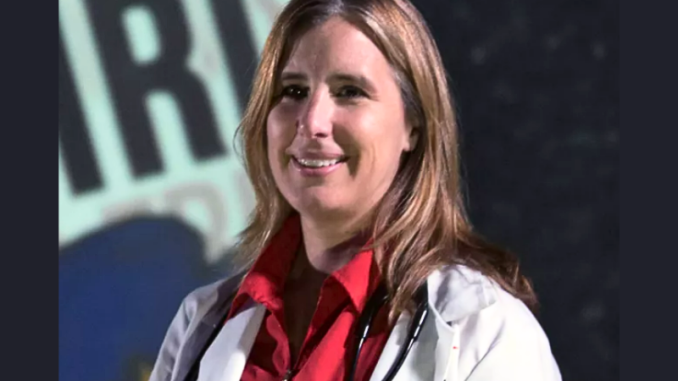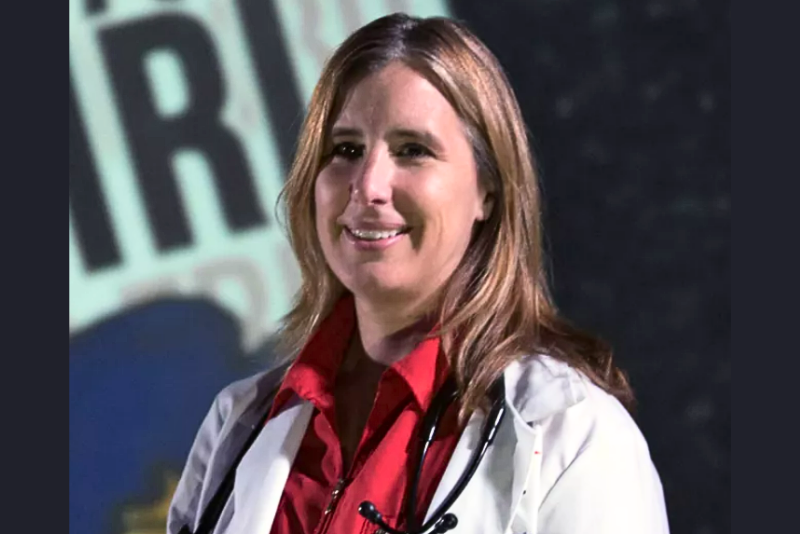

OAN Staff Brooke Mallory
12:16 PM – Wednesday, October 23, 2024
After conducting a study and finding no proof that puberty blockers benefit gender dysphoric patients’ mental health, a well-known physician and trans rights activist admitted that she purposefully postponed the publishing of a $10 million taxpayer-funded study on the impact of these medications on American youth.
Advertisement
Dr. Johanna Olson-Kennedy told reporters that she believes the study could be “weaponized” by those who oppose “transgender child medical care,” and that it could be used as evidence in court to support the claim that people should not utilize puberty blockers or other methods of altering a child’s gender in order to be better perceived as the opposite sex.
In the world of transgender activism and LGBTQ+ medical care, doctors say that although no one can change their biological sex, one can always change their perceived gender through the use of drugs and surgery.
The doctor’s decision to not post the findings, according to critics, including one of Olson-Kennedy’s study colleagues, violates research guidelines and denies the public access to “really important” science in an area where Americans are still sharply divided.
Beginning in 2015, researchers administered puberty-blocking medications to 95 children, whose average age was 11, as part of a study supported by the National Institutes of Health. Delaying the onset of natural physical changes, such as breast development for biological girls or voice deepening for biological boys, is the goal of the treatments.
However, the children’s mental health did not improve after two years of follow-up, which Olson-Kennedy later tried to claim was only because the children were “in really good shape” mentally at the beginning and end of the two-year program.
The New York Times noted, however, that her optimistic evaluation also runs counter to previous data that researchers have previously claimed. Researchers maintain that approximately 25% of trial participants “were depressed or suicidal” prior to receiving therapy.
Additionally, the outcome contradicts the results of a famous 2011 Dutch study, one of the most notable scientific studies that advocates giving children puberty blockers. Children treated with puberty blockers allegedly reported better mental health and less behavioral and emotional issues, according to the Dutch researcher, who had a total of 70 subjects.
Olson-Kennedy is one of the nation’s top advocates of giving gender dysphoric kids and teenagers “gender-affirming medical care,” as she calls it, and she frequently offers “expert testimony” in court cases opposing state prohibitions on the controversial practice, which have spread to more than 20 states.
The doctor admitted, “I do not want our work to be weaponized,” when the New York Times questioned why the results had not been released after nine years. “It has to be exactly on point, clear and concise,” she added.
Olson-Kennedy then openly expressed her fear that the study’s lack of evidence of advantages in mental health could be used as justification in court to argue that “we shouldn’t use blockers.”
This is in addition to the thousands of cases of detransitioners, those who previously went through the process of transitioning, but later changed their mind. These individuals now maintain that they were just going through a phase at the time.
Many of these cases also now openly regret the fact that they can no longer have children in the future, and those who are biologically female have expressed regret that their voice will “forever be deep” like a man’s voice, even though they now wish to be female and present as their naturally feminine selves again.
According to a Washington Post-KFF Trans in America study, 58% of Americans are against hormone therapy for transgender adolescents aged 15 to 17, and 68% are opposed using puberty blockers to transgender youth aged 10 to 14.
Clinical psychologist and “transgender youth specialist” Erica Anderson told The New York Post that she was “shocked” and “disturbed” by the doctor’s decision to not publish such important data since it didn’t show the results that she wanted.
“We’re craving information about these medical treatments for gender questioning youth. Dr. Olson-Kennedy has the largest grant that’s ever been awarded in the US on the subject and is sitting on data that would be helpful to know,” she said.
“It’s not her prerogative to decide based on the results that she will or won’t publish them.”
Olson-Kennedy eagerly maintained in a 2020 progress report to the NIH that study participants would exhibit “decreased symptoms of depression, anxiety, trauma symptoms, self-injury, and suicidality, and increased body esteem and quality of life over time.”
When explaining why her initial hypothesis didn’t work out, Olson-Kennedy seemed to try to muddy the waters in her interview with the press by asserting that participants already had “good mental health on average.”
Despite this backtracking, she had previously claimed that 25% of the young patients in the research had indications of various “serious” mental illnesses before to the start of treatment, and, she repeated this claim “multiple times” before the study concluded.
When the publication asked Olson-Kennedy to detail the seemingly incongruous results, she stated she was “still analyzing the full data set” and that the findings were due to “data averages.”
Meanwhile, following a four-year review by independent researcher Dr. Hilary Cass, England’s National Health Service (NHS) banned puberty blockers for kids in April. Cass wrote in her report that “for most young people, a medical pathway will not be the best way to manage their gender-related distress.”
Leading Finnish pediatric gender medicine specialist, Dr. Riittakerttu Kaltiala, also stated in an interview last year that “four out of five” youngsters who question their gender or experience gender dysphoria will eventually grow out of it and accept their body without the need for medical help.
Stay informed! Receive breaking news blasts directly to your inbox for free. Subscribe here. https://www.oann.com/alerts
Advertisements below

